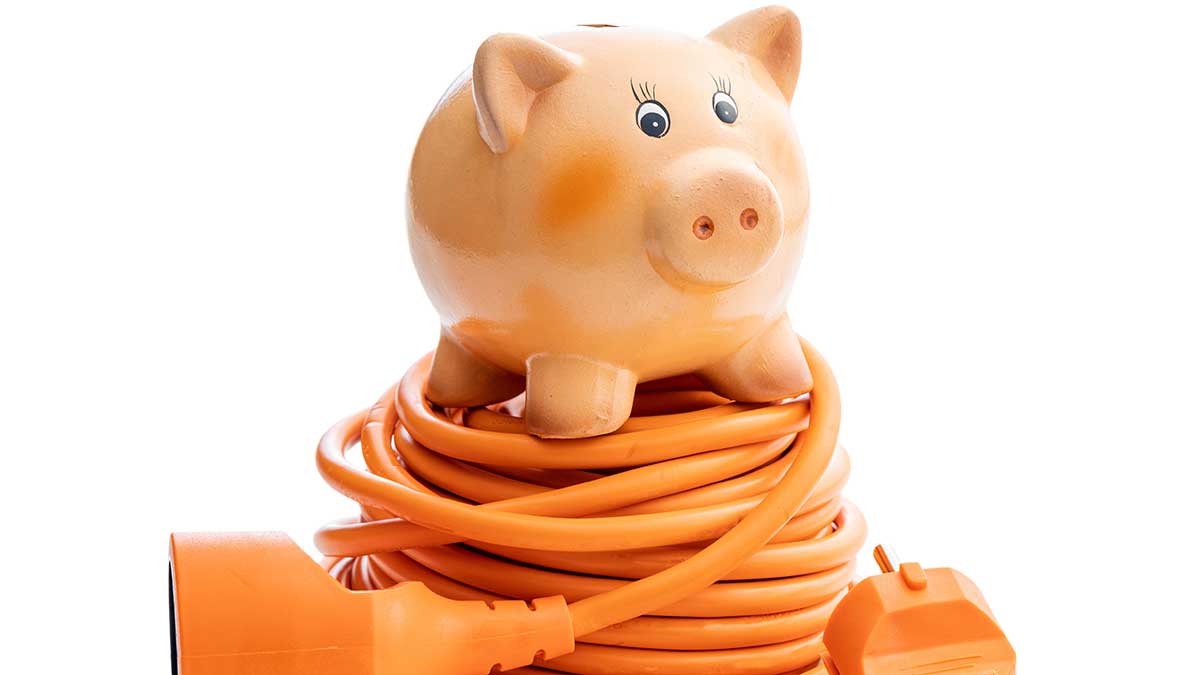Here’s the bad news – electricity prices are predicted to rise by as much as 35 per cent in 2023, and some cities could face the risk of rolling blackouts as the bumpy transition from coal-fired power to renewable energy continues at pace.
Now the good news. You can use some simple off-peak energy tips to save money and keep the lights on during the energy crisis.
What is off-peak energy and why should we care?
Household demand for electricity varies at different times of the day and night.
Energy demand tends to differ depending on where you live, but peak demand typically occurs between 4pm to 8pm on weekdays.
Read: How will the energy price cap affect your bills?
Shoulder periods are generally considered to be 7am to 4pm and 8pm to 10pm on weekdays, and 7am to 10am on weekends.
Off-peak periods are usually 10pm to 7am on weekdays, and after 10am on weekends.
Electricity tends to be more expensive during peak and shoulder periods. Energy rates are typically cheapest during off-peak periods.
Off-peak electricity typically costs 50 to 70 per cent less than peak electricity (depending on your energy provider).
Be aware: You’ll typically need a digital or smart meter installed in your home to be eligible for off-peak electricity rates. Your electricity provider should be able to tell you whether you have the right kind of meter.
Read: Big benefits in making savings a little more personal
Pro tip: You’ll also likely need to have a ‘time of use’ or ‘flexible pricing’ billing agreement with your electricity provider to access cheaper off-peak rates.
10 off-peak energy tips to cut your electricity bills
1. If your dishwasher has a timer function, consider setting it to turn on after 10pm. Or perhaps switch it on just before you go to bed (unless, of course, you have solar panels).
2. The same goes for your washing machine. Running energy-hungry appliances overnight can help you tap into off-peaking savings (again, unless you have solar).
3. Turning appliances off at the power point can help to reduce your energy usage during more expensive daytime shoulder periods.
4. Charging your devices after 10pm can also help to shift more of your electricity consumption to cheaper off-peak periods.
5. Got an electric car? Charging it after 10pm on weekdays or after 10am on weekends can reduce the cost of running it by 50 to 70 per cent.
6. Some electric hot water heaters can be set to heat during off-peak periods. As hot water systems can be responsible for around 30 per cent of total household electricity consumption, this one can be quite a money saver.
7. Installing a solar power system with a battery can also help to ease your peak electricity costs. Charge the system during the day, then switch to battery power during night-time peak periods.
8. While your fridge obviously needs to stay on during peak periods, upgrading to a more energy-efficient model can pay off in the long run.
9. Doing a big, weekly off-peak cook-up after 10am on weekends can help to reduce your energy bills – and save you time preparing weekday meals.
10. Likewise, running a pool pump after 10am on weekends can help take some of the power burden off expensive peak periods.
Read: How to spot a fake review
Be aware: Did you know that your electrical appliances can be responsible for up to 30 per cent of your total household electricity consumption? Checking the energy-star rating of your appliances will help to identify any inefficient culprits that could be blowing out your power bills.
Pro tip: Garden and outdoor lights can be a hidden drain on your electricity consumption – particularly when they’re in use before 10pm. Switching to solar-powered garden and outdoor lights can reduce your peak load, and save you money.
The bottom line
It looks likely that Australian households will be paying 30 per cent more for power in 2023.
We might also face electricity shortages and rolling blackouts as more coal-fired power plants go offline.
Shifting as much of your electricity usage as possible to cheaper off-peak periods can help ease the pain. Off-peak electricity can be between 50 and 70 per cent cheaper than peak electricity, and less vulnerable to shortages and blackouts.
A few simple changes in how and when you use energy-hungry appliances can help you save money and keep the lights on.
This article originally appeared on Expert Analysis and is republished with permission.
Do you understand off-peak electricity and make the most of the benefits? Do you know of any other off-peak energy tips to cut electricity bills?
This information is of general nature only and has been prepared without taking into consideration your objectives, needs and financial situation. You should check with a financial professional before making any decisions. Any opinions expressed within an article are those of the author and do not specifically reflect the views of Compare Club Australia Pty Ltd.

